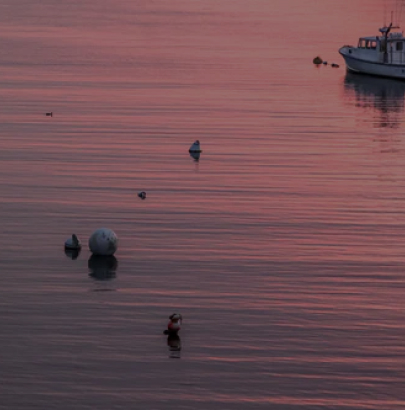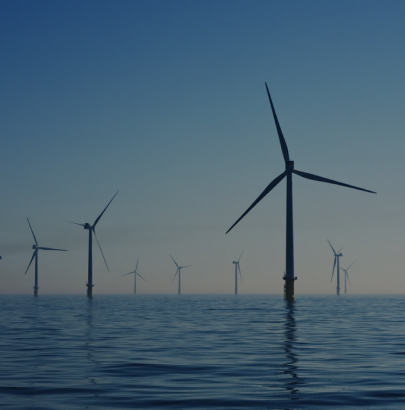Overall Scope
With offshore wind able to help Maine meet its renewable energy need to address climate change and a $70B opportunity for economic growth, the state is developing the EDA-funded Maine Offshore Wind Roadmap: Charting a Course for Maine. Maine’s position near population centers with high energy demands, an enterprising citizenry with maritime heritage, an innovative research environment, and a high-quality wind resource make our state an ideal place to responsibly develop an offshore wind industry. Maine needs to identify how to support an OSW economy in a way that embraces the opportunity, while ensuring the sustainability of our Maine coastal heritage, existing ocean users, and resources.
Maine’s environment and wildlife are critically important to our state and citizens - essential to our healthy ecosystems, quality of life, and unique natural resource-based heritage. While planning Maine’s path toward a robust offshore wind economy, we need to protect Maine’s environment and wildlife. This working group will identify best practices, data gaps, and research needs to avoid-minimize-mitigate impacts of offshore wind in the Gulf of Maine on wildlife (e.g., birds, bats, marine mammals, other protected species) and address broader environmental impacts to habitat.
Goals of the Working Group
- Produce actionable, prioritized strategies to avoid, minimize or mitigate potential impacts of offshore wind to the marine environment and wildlife; and
- Provide recommendations towards implementation of those strategies, including potential policy changes, research, funding options, and partnerships, in the immediate, near term (through 2025), and in the longer-term (from 2025 – 2040).
Deliverables to Advisory Committee:
-
Recommended criteria and standards Maine should incorporate in comments for siting future offshore wind projects in the Gulf of Maine to protect wildlife and the environment.
-
Develop a specific action plan with a list of prioritized monitoring and research that Maine should pursue by itself or with its regional partners, both for the research array and to improve our understanding of inform federal leasing process and to improve our understanding pre, during and post construction. Initial baseline data collection for the Gulf of Maine should be identified and promoted prior to completion of the Roadmap process.
-
Identification of recommended practices for environmentally responsible development Maine should promote to protect wildlife and the marine environment in the development of future offshore wind projects and throughout the project life cycle.
-
Regulatory or other policy options (i.e., Purchase Power Agreement criteria or federal consistency) Maine should consider to promote due consideration of the impacts of offshore wind on Maine’s fisheries and marine ecosystem in the federal process.
-
Advice and guidance on the structure, composition and work tasks of a research consortium to design, fund and oversee the priority research in Maine’s Research Array.
-
Suggested approach and list of future topics to continue dialogue and input from Maine’s wildlife and environment interests to inform and shape the development of offshore wind in the Gulf of Maine going forward.
Work plan:
This section outlines how we will do this work and a general outline of the working group schedule:
-
Mutual Learning: Initial working group meetings will focus on building a shared understanding of priority topics selected by working group members such as offshore wind and cabling technology, federal and state roles in permitting, fisheries impacts, etc. These can be through short webinars.
-
Engage: Throughout the process we will engage with a variety of coastal and marine stakeholders and experts to elicit their ideas, hear their feedback on our ideas and share final recommendations. Meetings will be noticed on the GEO website and are open to the public. A list of suggested outreach opportunities will be developed by the working group. It is anticipated that most outreach will take place at already scheduled meetings of key stakeholders.
-
Partner: While recognizing that each state may want to create space for state-specific issues, the resources of the Gulf of Maine are shared and will benefit from joint learning, regional collaboration and participation beyond state boarders. The working group will proactively engage with NH, MA and federal agencies on issues related to shared resources.
-
Review and Catalog References: At the request and guidance of the working group, staff and/or contractor will collect, review and catalog existing reports, studies and plans to assist the working group with its work. We will draw on existing data, strategies and lessons learned from other places similar to Maine and collate them in a shared space for easy access.
-
Assess Maine’s Existing Tools for OSW, Environment, and Wildlife: At the guidance of the working group, a contractor and/or staff will identify what is and isn’t covered in existing Maine law (e.g., NRPA and Site Law), as well as any data or information needs. The working group will evaluate and consider this information, as well as technical and scientific expertise and input from stakeholders, experts, and agencies.
-
Develop Plan to Improve: Based on findings from 4 and 5, identify and prioritize recommendations in the immediate, near term (through 2025) and long term (2026-2040). These could include:
-
Data, Information, Research, and R&D/Innovation Needs
-
Leadership, Program and Partnership Opportunities
-
Funding Opportunities – state and other
-
Communication, Outreach and Education Needs
-
Policies, Laws, Regulations
-
Other Working Groups

Fisheries

Supply Chain, Workforce, Ports, and Marine Transportation
